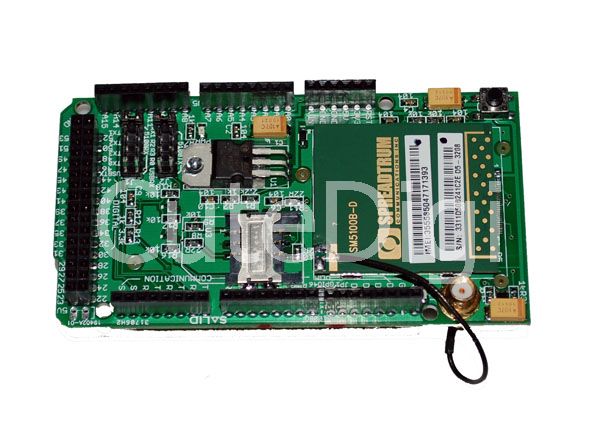Difference between revisions of "Quad-band GPRS/GSM Shield for Arduino Mega"
Katherine.d (talk | contribs) (→Specification) |
Katherine.d (talk | contribs) (→Resources) |
||
| Line 187: | Line 187: | ||
== Resources == | == Resources == | ||
| − | + | *[https://s3.amazonaws.com/linksprite/Shields/GPRS_SM5100_MEGA/LinkSprite_GSM_GPRS.pdf User manual] | |
| − | + | *[https://s3.amazonaws.com/linksprite/Shields/GPRS_SM5100_MEGA/GPRS_EVB.pdf Reference] | |
| − | + | *[https://s3.amazonaws.com/linksprite/Shields/GPRS_SM5100_MEGA/Antenna_options.pdf Antenna Options] | |
| − | + | *[https://s3.amazonaws.com/linksprite/Shields/GPRS_SM5100_MEGA/SM5100B-D-SMS-APPNOTES-V1.0.pdf SMS Application Note] | |
| + | *[https://s3.amazonaws.com/linksprite/Shields/GPRS_SM5100_MEGA/SM5100B-D-TCPIP-APPNOTES-V1.1.pdf GPRS Application Note] | ||
| + | *[https://s3.amazonaws.com/linksprite/Shields/GPRS_SM5100_MEGA/SM5100B--AT-Command_V1.0.0.pdf AT commands manual] | ||
== How to buy == | == How to buy == | ||
Revision as of 08:53, 28 December 2012
Contents
Introduction
LinkSprite SM5100B GSM/GPRS module: a miniature, single-side board, quad-band GSM 850/EGSM 900/DCS 1800/PCS 1900 module, ready for integration in various kinds of Fix wireless phones and other wireless devices.
USA providers are all on 850/1900Mhz and pratically all the rest of the world uses 900/1800Mhz.
Features
Application Ideas
Cautions
Schematic
Specification
| Temperature range | Normal range: -10°C to +55°C (full compliant)
Storage: -40°C to +85°C |
| Weight | < 9g |
| Physical dimensions | 35.0X39.0X2.9 mm (typical) |
| Connections | 60 pins |
| Power Supply | VBAT: 3.3V to 4.2V range, 3.6V typical. |
| Power consumption | Off mode: <100uA
Sleep mode: <2.0mA Idle mode: <7.0mA (average) Communication mode: 350 mA (average,GSM) Communication mode: 2000mA (Typical peak during TX slot,GSM) |
| Li-ion Battery charging management and interface (OPTION) | Li-ion Battery charging management is included. The charger interface is provided on 60-pin connector.
(only for 3.7V Li-ion Battery) |
| Frequency bands | EGSM900 +GSM850+ DCS1800+PCS1900 |
| Transmit power | Class 4 (2W) for EGSM900/GSM850
Class 1 (1W) for DCS1800/PCS1900 |
| Supported SIM card | 3V/1.8V SIM card. (auto recognise) |
| Keyboard interface | 4x6 keyboard interface is provided |
| UART0 interface with flow control | Up to 460 kbps
Full hardware flow control signals (+3.0V) are provided on 60 pins. |
| UART1 interface without flow control | 2-Wire UART interface
Up to 460 kbps |
| LCD interface | Support standard SPI interface |
Pin definition and Rating
Mechanic Dimensions
Usage
Due to the large current of the GPRS module, a wall adaptor is recommended: http://www.cutedigi.com/product_info.php?products_id=4184
Hardware Installation
Tutorial 1
Jumpers position:
J1: 5100RX to TX1
J2: 5100TX to RX1
Pass through code:
<syntaxhighlight lang="c">
- include //Used for string manipulations
char incoming_char=0; //Will hold the incoming character from the Serial Port.
void setup()
{
//Initialize serial ports for communication.
Serial.begin(9600);
Serial1.begin(9600);
Serial.println("Starting SM5100B Communication...");
}
void loop()
{
//If a character comes in from the cellular module...
if(Serial1.available() >0)
{
incoming_char=Serial1.read(); //Get the character from the cellular serial port.
Serial.print(incoming_char); //Print the incoming character to the terminal.
}
//If a character is coming from the terminal to the Arduino...
if(Serial.available() >0)
{
incoming_char=Serial.read(); //Get the character coming from the terminal
Serial1.print(incoming_char); //Send the character to the cellular module.
}
}
</syntaxhighlight>
Programming
FAQ
Please list your question here:
Support
If you have questions or other better design ideas, you can go to our forum to discuss or creat a ticket for your issue at linksprite support.
Resources
How to buy
Here to buy Quad-band GPRS/GSM Shield for Arduino MegaARDUI_MEGA_5100_GPRS on LinkSprite Cart
See Also
Other related products and resources.
Licensing
This documentation is licensed under the Creative Commons Attribution-ShareAlike License 3.0 Source code and libraries are licensed under GPL/LGPL, see source code files for details.
